Labs and facilities
The Chair of Macromolecular Chemistry I is equipped with a comprehensive infrastructure featuring state-of-the-art technology.
This setup enables, in particular, the synthesis of a wide variety of polymers and reactive low-molecular-weight building blocks, their spectroscopic and chemical characterization, as well as extensive processing capabilities for the materials. As a result, ideal conditions are provided for the development of new functional materials, laying the foundation for innovative research and interdisciplinary collaborations.
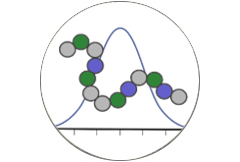
Determination of the molecular weight
Various GPC systems are available for the relative determination of the molecular weight, which differ primarily in terms of the separable molecular weight range and the separability of polymers of different polarities. Furthermore, absolute molar mass determination can be carried out via MALDI-ToF and DMAc-GPC with integrated viscosity and MALLS detector. In addition, the capillary viscometer allows for the determination of the viscosity average of polymers (Mη). ... more
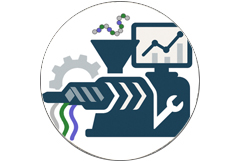
Polymer processing
Various devices enable further processing of the synthesized or produced materials, e.g. via 3D printing, (thin film) coating, extrusion and injection molding and rotational microtomy. ... more
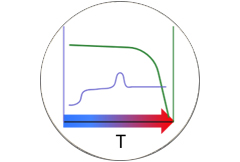
Thermal analysis
Various devices are available to determine the thermal properties of polymers or reactive low-molecular building blocks. For example, dynamic differential scanning calorimetry (DSC) can be used to investigate glass transitions, crystallization and melting processes, while thermogravimetric analysis (TGA) allows for the determination of the thermal stability and the decomposition temperature. ... more

Spectroscopy
In the field of spectroscopic characterization, various devices enable, for example, the determination of absorption behavior and fluorescence measurements in the UV to NIR range, turbidity behavior and the determination of the size and zeta potential of nanoparticles. FTIR spectroscopy is known to be used as a detection method for functional groups in polymers and low-molecular substances. ... more
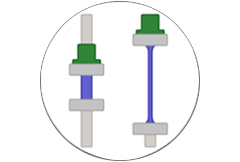
Mechanical analysis
In the field of mechanical analysis, rheological tests and viscosity determinations can be carried out using a rheometer, for example. Furthermore, the DMA allows the investigation of bending, tensile, shear and compression behavior. ...more
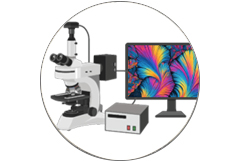
Microscopy / Imaging
In the field of microscopy / imaging, the chair is equipped with various crossed polarized light microscopes for optical investigation methods, a desktop electron microscope and a 3D scanner for observing various structures and objects. ... more
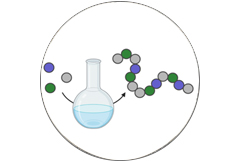
(Polymer) Synthesis and related techniques
With high precision analytical balances, centrifuges, a titration machine and a freeze dryer, the department is equipped with a wide range of devices to be used for the synthesis of various polymers and low-molecular substances. A peptide synthesizer and an anionic reactor are also available as further synthesis tools. Water-free, ultra-pure solvents can be obtained quickly and easily using a solvent purification system. ... more
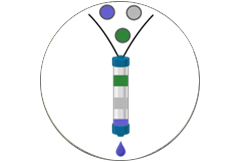
Chromatography
HPLC, flash chromatography and preparative GPC enable a fast and time-efficient separation of various mixtures of substances on normal or reversed phase columns. In case of preparative GPC, polymers up to 400 kDa can be isolated, depending on the column used. ... more

